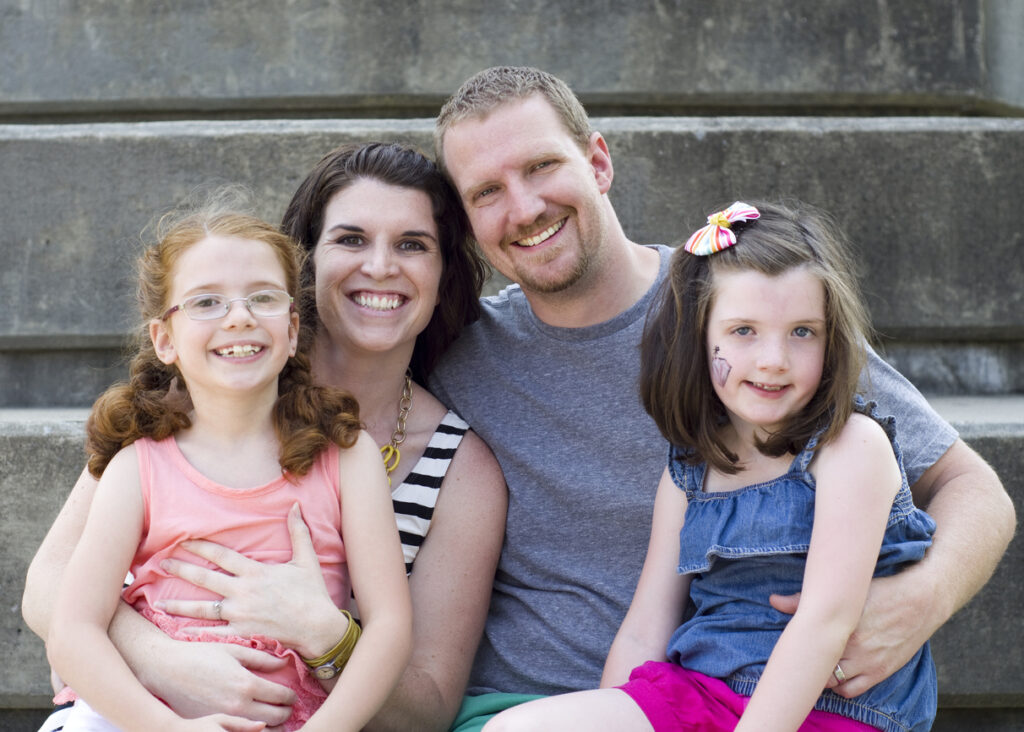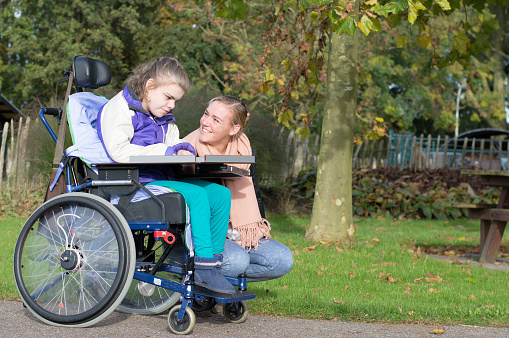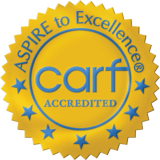
Be a positive influence.
Become a foster parent and be the person that makes a difference.
Interested in becoming a foster parent? Contact us at one of our locations to get started.
Bowling Green
270-904-2451
Campbellsville
270-283-4441
Elizabethtown
270-506-3766
Owensboro
270-231-8040
Somerset
606-485-4552
About Us
At Heritage Children Services, we are committed to our mission of providing the best training and support to our foster parents to promote a loving, safe, and structured home environment that respects children and instills values that empower and encourage hope, health, happiness, purpose, productivity, respect, and responsible citizenship.
Who We Are
Heritage Children Services is a locally owned and operated foster care agency; we are Kentuckians serving Kentuckians. As community members, we have a vested interest in the well being and future of Kentucky’s children. Our staff and foster parents are extremely well-trained and prepared to meet the needs of foster children placed with our agency.
We are guided by a culture of strong ethics, professionalism, and integrity. We are committed to ensuring positive outcomes for all we serve. We strive to provide the best training and support to our foster parents to ensure this. We have an open-door policy that provides direct access to all staff and management.

What We Do

If you meet the requirements and have a heart for children, we can train you to become a professional foster parent. We are licensed in the Commonwealth of Kentucky to provide Traditional Foster Care, Therapeutic Foster Care, Emergency Foster Care, and Respite Care services. Our expert staff will guide you through the entire process of becoming a foster parent and continue to support your home with our exceptional training, clinical, home resource, and case management services. We work closely with the referring agency and all other interested parties to achieve the child’s permanency goal through coordinated and successful individualized services that reflect our high standard of care and expertise.
In most cases, the goal of foster care is reunification of the child and family once it is healthy and safe to do. Unfortunately, it is not possible in all cases. Of the children needing out-of-home care, nearly 30% have the permanency goal of adoption. With our Foster to Adopt Program, we work to find permanent placements for these children with loving families.
We serve a geographical region with staff that are from the area and have long standing, personal relationships with community members and partners (i.e. schools, court, churches, other social services agencies, etc.).
Our Services
Traditional Foster Care
Children and adolescents are placed into the foster care system during family crises, serving as an opportunity to address conflicts. Those who have faced abuse or neglect and are deemed unsafe to remain at home by the courts find refuge in foster homes. Foster care is a temporary solution in which trained caregivers (foster parents) provide 24/7 care and support services in a home environment to children in state custody. This provides the family with a chance to acquire essential skills for a safe reunification with the youth. On average, more than half of all youths in foster care are reunited with their birth families within a year.
To minimize disruptions in the child’s life, caseworkers strive to locate a trusted family member or a familiar adult, such as a coach or teacher, for them to live with. Maintaining connections to their home community and attending the same school is prioritized to ensure the child is surrounded by familiar faces and routines. In cases where living with a known family member or adult is not feasible, the child is placed in a foster home.

Therapeutic Foster Care
There are many children who are placed in foster care that have experienced traumatic stress such as abuse, neglect or other family problems. In addition, some of them also have significant medical conditions or intellectual and developmental delays. These children need specialized care from trained professionals and caregivers in order to heal from trauma and develop their social and independent living skills. Therapeutic foster care is an intensive, treatment-based approach to caring for children in foster care to better meet their physical and emotional needs. Youth in therapeutic foster care meet regularly with a therapist and a therapeutic case manager who assist and monitor their progress. Therapeutic foster parents also receive continual training and 24/7 professional support.
Therapeutic Foster Care includes the following:
- Medically Complex Foster Care – for children with medical challenges.
- Specialized Medically Complex Foster Care – for children with medical and emotional challenges.
- Degreed Medically Complex Foster Care – for children with medical challenges in which the primary caretaker is a health care professional.
- Care Plus Foster Care – for children who have emotional or behavioral challenges.

Emergency Foster Care
There are situations where time constraints prevent the development of a planned placement for a child. This is when emergency foster care becomes necessary.
Emergency foster care serves as a short-term solution for infants and children facing urgent needs. Instances such as drug or alcohol abuse, unexpected death, or a parent or caregiver’s sudden physical or mental incapacity to care for a child may prompt social services to promptly remove the child from their current living situation. This can occur at any time of day or night, throughout the year.
The primary objective is to ensure the child resides in a safe and nurturing environment while social services diligently work to identify a more permanent solution, whether through placement with a relative, traditional foster care, or adoption. Once the decision is made to remove the child from their current living situation, social services reach out to their roster of emergency foster care providers. Often, these calls occur during late hours or weekends. Upon confirmation of willingness and availability by the emergency foster care provider, social services arrange for the child to be delivered to the temporary home. Emergency placements can vary in duration, ranging from a few hours to a few months. While each state has its own guidelines with different definitions of emergency foster care, temporary placements typically last between 72 hours and 30 days. Once a permanent solution is identified, whether with a relative or foster family, the child transitions from the emergency foster care provider’s home to their new living arrangements.
It’s crucial to recognize that children placed in emergency foster care are often in a delicate state. They have undergone loss, will experience grief, and may struggle to cope. An effective emergency foster care provider is someone who can exhibit patience, offer a stable living environment, remain available 24 hours a day, and help the child feel wanted and loved. While it’s permissible to decline a placement, emergency foster care providers should be prepared and willing to accept a child at a moment’s notice.
Similar to traditional foster care, prospective caregivers must attend an informational meeting, complete an application, undergo background checks and clearances, participate in training and classes, and obtain their foster care license. Requirements for emergency foster care providers may vary from state to state.

Respite Care
Respite foster care is a specific type of foster care that provides short-term relief to regular foster families. In respite care, trained and approved respite foster parents temporarily care for a child who is already in the foster care system. The primary purpose is to offer the child’s regular foster family a break or respite from their caregiving responsibilities. This break could be for various reasons, such as the foster family needing time for personal commitments, vacations, or simply to prevent caregiver burnout.
Key features of respite foster care include:
Temporary relief for foster families: Respite foster care is intended to give the primary foster family a temporary break while ensuring the child continues to receive care in a safe and supportive environment.
Short-term placement: Respite placements are typically short-term, ranging from a few hours to a few days. The exact duration is agreed upon between the regular foster family, the respite foster family, and the child welfare agency.
Trained Respite Foster Parents: Respite foster parents undergo similar training and screening processes as regular foster parents. They need to be familiar with the foster care system, child development, and the unique needs of children in foster care.
Maintaining stability for the child: Efforts are made to ensure that the respite placement is as stable as possible for the child. This includes providing necessary information about the child’s routine, preferences, and any specific requirements to the respite foster family.
Collaboration with child welfare agencies: The arrangement for respite care is usually coordinated through the child welfare agency responsible for the child’s case. The agency works with both the regular foster family and the respite foster family to facilitate the temporary placement.
Respite foster care is an essential support system within the foster care network, recognizing the demanding nature of fostering and aiming to prevent caregiver fatigue. It contributes to the overall well-being of both foster children and foster families by ensuring that caregivers have the opportunity to recharge, reducing the risk of burnout, and maintaining a stable and nurturing environment for the child in care.

CARF Accreditation
Heritage Children Services holds CARF Accreditation from the Commission on Accreditation of Rehabilitation Facilities (CARF), a reputable nonprofit organization dedicated to enhancing the quality of health and human services. CARF has been a trusted accrediting body since 1966, covering a broad spectrum of services such as child and youth services, aging services, and opioid treatment.
Being CARF-accredited signifies that we have aligned our business and service delivery practices with CARF’s stringent standards for quality. CARF International not only provides a comprehensive framework but also offers consultation and guidance to health and human service organizations, aiding them in elevating the quality of their services.
The accreditation process involves internal audits, external audits, and onsite surveys conducted by a team of expert practitioners chosen by CARF. This rigorous evaluation assesses whether the provider meets over 1,500 internationally recognized standards, offering a thorough examination of all aspects of a community and the care it delivers.
For those receiving services, CARF accreditation translates to a commitment by the service provider to mitigate risks, address health and safety concerns, honor individual preferences, and deliver the highest quality of care possible. It serves as a demonstration that the CARF-accredited provider has specifically pledged to prioritize service quality, placing the needs of individuals at the forefront of their operations while respecting the rights and individuality of their clients.

Our Locations
Have a question or would like to get started? We are here to help you.
Bolling Green Office
1990 Louisville Road,
Suite 103
Bowling Green, KY 42101
270-904-2451
Campbellsville Office
156 Gaines Drive
Campbellsville, KY 42718
270-283-4441
Elizabethtown Office
2935 Dolphin Drive,
Suite 202
Elizabethtown, KY 42701
270-506-3766
Owensboro Office
920 Frederica Street,
Suite 106
Owensboro, KY 42301
270-231-8040
Somerset Office
650 North Main Street,
Suite 230
Somerset, KY 42501
606-485-4552
Foster Care FAQ
Foster Care FAQ
Foster care is a temporary service or arrangement provided by the states for children who are unable to safely remain with their families in their homes. Often, this is due to some type of crisis the family is experiencing. It is a situation in which for a period of time a child lives with and is cared for by people who are not their parents. Children in foster care may live with relatives or with unrelated foster parents. Foster care can also refer to placement settings such as group homes, residential care facilities, emergency shelters, and supervised independent living.
Most children and teens that are in foster care are there due to some degree of child abuse or neglect. Neglect would normally include physical, emotional, medical, sexual, or lack of supervision. Examples of physical neglect could be not providing the child with adequate food, clothing or shelter. Each state determines the criteria that determines how physical, sexual, and emotional abuse are defined.
Traditional (Basic) Foster Care: This is a temporary arrangement in which trained caregivers (foster parents) provide 24/7 care and support services in a home environment to children in state custody. In most cases, the birth parents are unable to care for them due to some type of family crisis. This arrangement is intended to be temporary until it is healthy and safe for the children to return to their biological family.
Therapeutic Foster Care: This includes the following:
* Medically Complex Foster Care – for children with medical challenges.
* Specialized Medically Complex Foster Care – for children with medical and emotional challenges.
* Degreed Medically Complex Foster Care – for children with medical challenges in which the primary caretaker is a health care professional.
* Care Plus Foster Care – for children who have emotional or behavioral challenges.
There are many children who are placed in foster care that have experienced traumatic stress such as abuse, neglect or other family problems. In addition, some of them also have significant medical conditions or intellectual and developmental delays. These children need specialized care from trained professionals and caregivers in order to heal from trauma and develop their social and independent living skills. Therapeutic Foster Care is an intensive, treatment-based approach to caring for children in foster care to better meet their physical and emotional needs. Youth in therapeutic foster care meet regularly with a therapist and a case manager who assist and monitor their progress. Therapeutic foster parents also receive continual training and 24/7 professional support.
Emergency Foster Care: Emergency caregivers are assigned to provide short-term care for children placed in protective state custody. This is usually for a period up to 72 business hours, or until a relative or foster family placement is found.
Respite Care: Foster parents may need a break and time to rest after providing ongoing daily care to a child. Respite caregivers provide short-term care, typically evening or weekend care, for a child currently living with another foster family.
Nationally, about 428,000 children are in foster care. In Kentucky, about 9,000 youth are in foster care and there is a great need for loving and supportive foster parents.
Children in foster care range in age from newborns to 21 years old. Teenagers are the largest demographic and in the greatest need as well as sibling groups of three or more children.
Persons from all racial/ethnic/cultural and religious backgrounds, renters and homeowners, single, married, divorced or living with a partner, persons who identify as LGBTQ+, persons with any education level, all are welcome to apply.
- Applicants must be at least 21 years old.
- Foster/Adoptive parents can be married, single or living with a partner.
- Foster/Adoptive families should be financially stable and have an income sufficient to meet the family’s needs.
- Applicants must be able to provide a safe, secure and healthy home for a child.
- Foster/Adoptive parents must be in good physical and mental health.
- All adults in the home must complete criminal background checks including FBI, sex offender registry and a check of the child abuse registry.
- All applicants must complete training to help them understand the needs of children in foster care.
No, you can be married, single, divorced, widowed or living with a partner. However, if you are presenting as a couple, both must go through the approval process.
No, you can rent. But you must have adequate space available and your landlord’s approval to care for foster children.
Yes. Extra help for the cost of day care may be available.
To meet the needs of children placed in their home, foster parents receive:
- Financial assistance in the form of a daily rate
- Medical coverage for the children
- Daycare assistance for working parents
- Other assistance provided to meet the specialized needs of children on a case by case basis
The Department for Community Based Services provides training that meets the needs of foster parents. Foster parents are required to receive a minimum of fifteen hours approved curriculum training and fifteen hours of pre-service web-based training to becoming a foster parent. Approved foster and adoptive families must complete a minimum of ten hours of ongoing training each year.
Yes. We want to ensure that the needs of the children placed in the home are compatible with the strengths of the foster parents.
Applicants will be expected to have an income sufficient to meet their present family needs and to insure the stability of the family unit.
Regulations and requirements for foster parenting differ from state to state. That makes it difficult to provide an accurate timeframe on the approval process. However, most foster parents complete all the steps in 3 to 6 months.
There is no “waiting period” after your foster home is approved. It is not uncommon for foster parents to accept their first placement within days of their home being approved.
There is no typical time frame because children are placed in foster care for a lot of different reasons. Some need only brief, temporary placement until a relative can be located. Others may need a stable environment in which to finish school or until their parents can meet their treatment goals. There are also some children that may need long-term to permanent care (adoption).
The first goal for most foster children is to reintegrate them back into a safe and stable environment with their birth family. The length of stay in a foster home and in foster care varies depending on the progress of the case plan.
Our goal is for foster youth to be treated as much like one of your own children as possible. However, there are some limitations on what foster youth can do. Since the state is the legal custodian of foster youth, we must get permission before they are allowed to engage in certain activities or attend certain events.
No. Same sex children are allowed to share a room with one another, but are not allowed to share a bedroom with a foster parent. However, they must have their own bed.
A child may be placed with a relative when it is in the best interest of the child. To be eligible for the assistance provided to foster parents, a relative foster home must meet the same requirements for training and ongoing approval as nonrelative homes. The majority of children who are placed with relatives do so outside of the foster care system, and the family does not need to become approved to foster or adopt.
Kentucky offers foster parent peer support through programs such as:
- The Kentucky Foster and Adoptive Training Support Network
- The Foster Parent Mentor Program
- Adoption Support for Kentucky
Maybe. Foster care is temporary care with the goal of reuniting the child with his or her birth family. Three out of four foster children do go home and it is important for foster parents to help the child successfully reunite with his or her birth parents while helping the child during such a tumultuous time. In the event that the child’s goal changes to adoption, the foster family may apply to adopt. Many adoptions in Kentucky are foster parent adoptions. In selecting adoptive families, the best interest of the child is always of the utmost importance. Therefore, many factors have to be considered. For example, does the child need to be adopted with his or her siblings who may be in other foster homes? Your R&C worker can help you in deciding whether to explore this option.
All known relevant information about the child’s educational, medical or developmental history is provided to the foster parent.
This is not a problem unless the child is allergic or scared.
A child’s placement may be for as short as an overnight stay or longer than a year.
A foster child’s return home is usually the ultimate goal. The foster parent will have the opportunity to participate in the planning and to say goodbye to the foster child. This can be a difficult time, but the child’s return home represents a success. Returning home is the goal for most children in foster care. You will play an integral role in helping the child and family successfully transition.
Respite care is available for foster families and children. Respite is used when a foster family simply needs to take a break for a few days or if the foster family needs to be away for other reasons.
The children’s level of contact with their biological families will depend on their individual cases. In some of the cases, parental rights may have already been terminated, resulting in no contact. In other cases, there may be phone calls and supervised visits, or children may spend weekends at home with their biological families unsupervised.
Foster parents should be open to having some contact with the birth families, when the goal is for the eventual reunification of the child and their biological parents. Overall, it is best for the child if the foster parents and birth parents can establish a positive relationship with each other.
In the majority of cases nationwide, children in foster care are reunited with their families. The average length of time a child is in foster care is about a year, but a lot of this is dependent on the length of time it takes for the family to resolve their conflicts or disruptions and demonstrate that their home is safe for their child’s return home.
Confidentiality laws prohibit the release of further information about the child after they leave your care. If the child is subsequently placed in another foster home or residential facility, it is left to the case manager’s discretion as to whether continued contact is in the child’s best interest. If the child is reintegrated or adopted, this decision is given to the child’s birth or adoptive parents.
Actually, there’s no typical model. Some of our foster families are single-parent families. Some have kids in their home while others don’t. Some older foster parents have already raised their own family, but want to open their hearts and homes to more kids. Some are homeowners, and some are renters. Our parents come from all racial, ethnic, religious backgrounds and sexual orientations.
Become a Foster Parent Anchor
Become a Foster Parent
Kentucky Foster Care Process
The process may seem challenging, but you can be assured that a Heritage Resource Coordinator will guide and assist you through every step of the way.
Contact Us
Call or visit one of our offices to discuss the requirements and the process of becoming a foster parent.
Attend Orientation
At the orientation meeting, we will discuss with you how foster care delivery works in Kentucky and at Heritage Children Services.
Sign Agreement
Read and sign Foster Care Agreement at the Foster Parent Orientation meeting.
Submit Foster Application
After signing the Foster Family Homes Agreement, you may submit an application to become a foster parent.
Background Check
Background checks are conducted for all adult household members.
Health Assessment
A complete health assessment is done for all members of the household by a licensed physician.
Submit Proof Documents
Submit copies of IDs, driver’s license, auto insurance, financial statements, and as applicable: divorce decrees, child support agreements, and pet vaccinations.
Foster Care Training
Attend the initial 36 hours of Foster Care training, CPR training, and First Aid training.
Safety Audit
Safety audit is conducted of your home.
Home Study Report
Home Study Report is prepared about your home and background. The state will consider the report when placing children in your home.
Home Study Report Review
Heritage Children Services Program Director reviews the Home Study Report.
Home Certification
If the Home Study Report looks good, your home will be officially certified and open for accepting foster children.
Although Heritage Children Services welcomes foster homes from other agencies that are in good standing and presently certified, we strongly advise foster parents who are considering transferring their homes to our agency to attempt to work out any issues you have with your present agency. If this is not possible or you remain unsatisfied with the services you receive, please let the agency you wish to transfer from know about your intentions to transfer your certification to our agency. This will not only help prevent any lapses in the continuity of care for the children in your home, if applicable, but is also the right thing to do. Our Heritage Resource Coordinator will guide and assist you during this process.
Contact Us Anchor